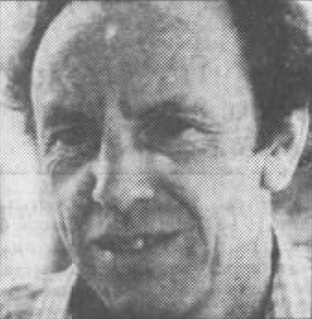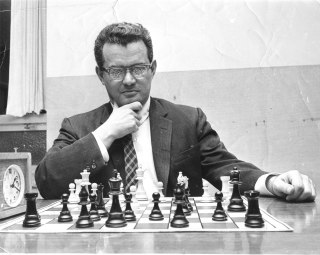
In academic publishing, a scientific journal is a periodical publication intended to further the progress of science, usually by sharing findings from research with readers. They are normally specialized based on discipline, with authors picking which one they send their manuscripts to.
A fallacy is the use of invalid or otherwise faulty reasoning in the construction of an argument which may appear to be a well-reasoned argument if unnoticed. The term was introduced in the Western intellectual tradition by the Aristotelian De Sophisticis Elenchis.

The University of Windsor is a public research university in Windsor, Ontario, Canada. It is Canada's southernmost university. It has approximately 12,000 full-time and part-time undergraduate students and 4,000 graduate students. The university was incorporated by the provincial government in 1962 and has more than 135,000 alumni.

Argumentation theory, or argumentation, is the interdisciplinary study of how conclusions can be supported or undermined by premises through logical reasoning. With historical origins in logic, dialectic, and rhetoric, argumentation theory, includes the arts and sciences of civil debate, dialogue, conversation, and persuasion. It studies rules of inference, logic, and procedural rules in both artificial and real-world settings.

Alasdair Ian Fenton Urquhart is a Scottish–Canadian philosopher and emeritus professor of philosophy at the University of Toronto. He has made contributions to the field of logic, especially non-classical logic. One of his ideas is proving the undecidability of the relevance logic R. He also published papers in theoretical computer science venues, mostly on mathematical logic topics of relevance to computer science.

Essex Terminal Railway is a Canadian shortline terminal railroad, running from the City of Windsor, Ontario through LaSalle, to Amherstburg, Ontario, for a distance of approximately 21 miles (34 km). ETR has direct connections to Canadian Pacific Railway, Canadian National Railway and CSX. ETR is owned by Essex Morterm Holdings. Founded in 1902, it is one of the oldest existing railways in Canada.
Douglas Neil Walton was a Canadian academic and author, known for his books and papers on argumentation, logical fallacies and informal logic. He was a Distinguished Research Fellow of the Centre for Research in Reasoning, Argumentation, and Rhetoric (CRRAR) at the University of Windsor, Ontario, Canada, and before that (2008–2014), he held the Assumption Chair of Argumentation Studies at the University of Windsor. Walton's work has been used to better prepare legal arguments and to help develop artificial intelligence.

Assumption University is a Roman Catholic university in Windsor, Ontario, Canada federated with the University of Windsor. It was founded in 1857 as Assumption College by the Society of Jesus and incorporated by an Act of the Parliament of Upper Canada, receiving Royal Assent, August 16, 1858. It entered an association with an Ontario university as the Assumption College of the University of Western Ontario (1920-1953) then became the Assumption University of Windsor in 1956, before changing its name again in 1964. When the University of Windsor was established as a secular public university in 1963, Assumption University entered into federation with the newly formed university. Assumption University also remains affiliated with Canterbury College (Anglican) and Iona College (Interfaith). Assumption University is a full member of the Association of Catholic Colleges and Universities in Canada (ACCUC).

Informal logic encompasses the principles of logic and logical thought outside of a formal setting. However, the precise definition of "informal logic" is a matter of some dispute. Ralph H. Johnson and J. Anthony Blair define informal logic as "a branch of logic whose task is to develop non-formal standards, criteria, procedures for the analysis, interpretation, evaluation, criticism and construction of argumentation." This definition reflects what had been implicit in their practice and what others were doing in their informal logic texts.

The Faculty of Law is a faculty of the University of Windsor in Windsor, Ontario, Canada. The first class of students matriculated in 1968, and the current building was opened in 1970. The Faculty has grown immensely over the past 50 years, increasing its national profile through its innovations in research and from thousands of alumni across Canada and the world. The 2017 endowment to the Faculty of Law was $10.2 million. The Faculty is also the current academic host institution of the Canadian Bar Review (CBR), the most frequently cited journal by the Supreme Court of Canada.

Charles Leonard Hamblin was an Australian philosopher, logician, and computer pioneer, as well as a professor of philosophy at the New South Wales University of Technology in Sydney.
Philosophy of logic is the area of philosophy that studies the scope and nature of logic. It investigates the philosophical problems raised by logic, such as the presuppositions often implicitly at work in theories of logic and in their application. This involves questions about how logic is to be defined and how different logical systems are connected to each other. It includes the study of the nature of the fundamental concepts used by logic and the relation of logic to other disciplines. According to a common characterization, philosophical logic is the part of the philosophy of logic that studies the application of logical methods to philosophical problems, often in the form of extended logical systems like modal logic. But other theorists draw the distinction between the philosophy of logic and philosophical logic differently or not at all. Metalogic is closely related to the philosophy of logic as the discipline investigating the properties of formal logical systems, like consistency and completeness.
Ralph Henry Johnson is a Canadian American philosopher, born in Detroit, Michigan. Johnson has been credited as one of the founding members of the informal logic movement in North America, along with J. Anthony Blair who co-published one of the movement's most influential texts, Logical Self-Defense, with Johnson. Alongside its founder, Blair, Johnson co-directed the Centre for Research in Reasoning, Argumentation, and Rhetoric at the University of Windsor. As Johnson and Blair write in the preface to the newest edition of Logical Self-Defense on the influential nature of the text:
"We might note that the theoretical perspective introduced in Logical Self-Defense has proved quite influential among textbook authors. It is to be found in modified form in A Practical Study of Argument by Trudy Govier, in Attacking Faulty Reasoning by T. Edward Damer, in Logic in Everyday Life and Open Minds and Everyday Reasoning by Zachary Seech, in Thinking Logically by James B. Freeman, and in Good Reasoning Matters by Leo Groarke and Christopher W. Tindale."

Albert Harold Lightstone (1926–1976) was a Canadian mathematician. He was one of the pioneers of non-standard analysis, a doctoral student of Abraham Robinson, and later a co-author with Robinson of the book Nonarchimedean Fields and Asymptotic Expansions.

Logic is the study of correct reasoning. It includes both formal and informal logic. Formal logic is the science of deductively valid inferences or of logical truths. It is a formal science investigating how conclusions follow from premises in a topic-neutral way. When used as a countable noun, the term "a logic" refers to a logical formal system that articulates a proof system. Formal logic contrasts with informal logic, which is associated with informal fallacies, critical thinking, and argumentation theory. While there is no general agreement on how formal and informal logic are to be distinguished, one prominent approach associates their difference with whether the studied arguments are expressed in formal or informal languages. Logic plays a central role in multiple fields, such as philosophy, mathematics, computer science, and linguistics.
The Centre for Research in Reasoning, Argumentation, and Rhetoric (CRRAR) is an interdisciplinary research group within the University of Windsor, Canada, which supports research in the fields of argumentation, informal logic, and rhetoric. Notable members include the widely published argumentation theorist Douglas N. Walton, and early founders of the informal logic field Ralph Johnson and J. Anthony Blair.
Christopher William Tindale is a Canadian philosopher specializing in rhetoric, argumentation theory, and ancient Greek philosophy. Tindale is an editor of the journal Informal Logic, and currently serves as the chair of the Centre for Research in Reasoning, Argumentation, and Rhetoric. He has published numerous books and articles, translated into several languages, with a focus on argumentation and rhetoric.
John Anthony Blair is a Canadian philosopher.
Leo Groarke is a Canadian philosopher, known for his contributions to argumentation theory and informal logic.

Applied epistemology refers to the study that determines whether the systems of investigation that seek the truth lead to true beliefs about the world. A specific conceptualization cites that it attempts to reveal whether these systems contribute to epistemic aims. It is applied in practices outside of philosophy like science and mathematics.











